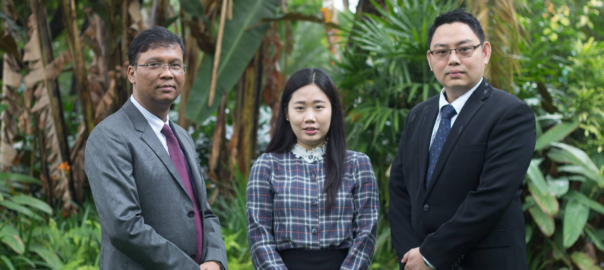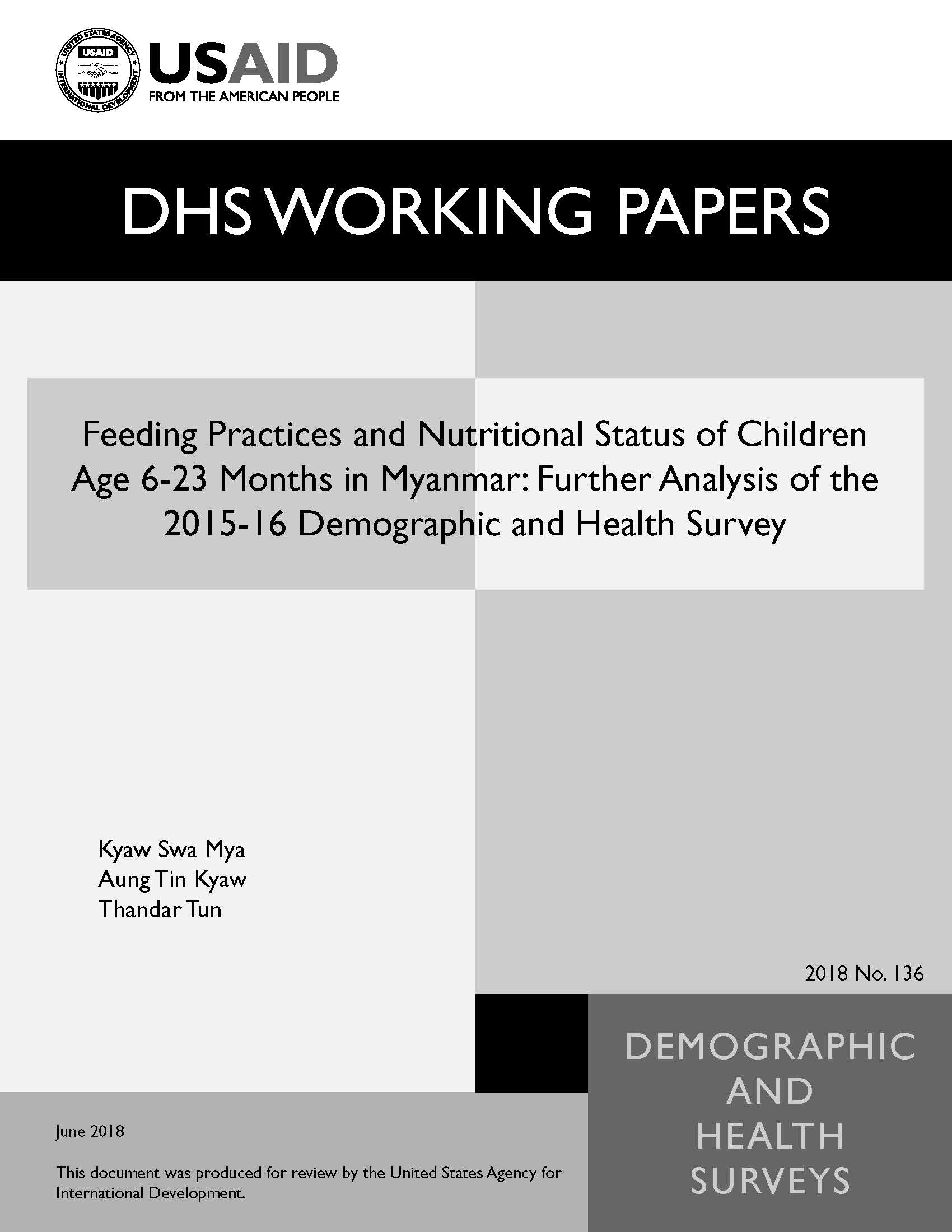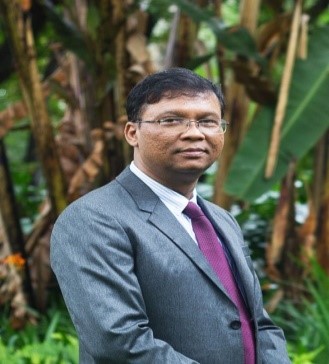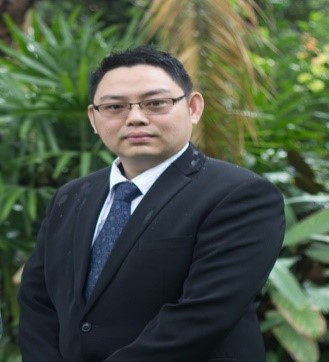Reflections from the 2018 DHS Fellows Program: Myanmar Team

We are pleased to announce that the 2019 DHS Fellows Program is currently accepting applications from Afghanistan, Cambodia, Indonesia, Myanmar, Benin, Ethiopia, Ghana, Senegal, South Africa, Tanzania, and Zimbabwe. Learn more from the 2018 DHS Fellows Program Myanmar team as they reflect on their experience with the program and apply to join us for the global DHS Fellows Program in 2019.
Apply for the 2019 DHS Fellows Program
We are a three-member team from the University of Public Health, Yangon, Myanmar accepted into the 2018 Myanmar DHS Fellows Program.
 Through the program, we learned that The DHS Program provides scientifically sound, affluent, and nationally representative data. DHS data are great additions to the limited data sources in Myanmar. Therefore, it is important that Myanmar researchers use these data effectively. In addition to the survey data, The DHS Program also provides reports and web tools (e.g. STATcompiler) that are useful for teaching, presentations, and writing papers. The program also provided us with a better understanding of DHS data, how to use data, select data, and analysis methods with STATA. The process of producing the working paper and preparing it for a peer-reviewed journal was also a reinforcing, challenging, and motivating task for us. We are grateful to the facilitators, Dr. Wenjuan Wang and Dr. Shireen Assaf, and other DHS experts for reviewing, commenting and editing our paper and we have submitted our article to the PLoS One journal for review. Overall, we had great experiences to share:
Through the program, we learned that The DHS Program provides scientifically sound, affluent, and nationally representative data. DHS data are great additions to the limited data sources in Myanmar. Therefore, it is important that Myanmar researchers use these data effectively. In addition to the survey data, The DHS Program also provides reports and web tools (e.g. STATcompiler) that are useful for teaching, presentations, and writing papers. The program also provided us with a better understanding of DHS data, how to use data, select data, and analysis methods with STATA. The process of producing the working paper and preparing it for a peer-reviewed journal was also a reinforcing, challenging, and motivating task for us. We are grateful to the facilitators, Dr. Wenjuan Wang and Dr. Shireen Assaf, and other DHS experts for reviewing, commenting and editing our paper and we have submitted our article to the PLoS One journal for review. Overall, we had great experiences to share:
“I have some experiences of secondary data analysis using large datasets so, I thought that data analysis using DHS data might be easy for me but, it was quite challenging to understand DHS data structure, sampling and weighting procedure and, survey data analysis using STATA. The Fellows Program greatly improved our data management and analytical skills. I now realize the DHS data’s quality, validity, and usefulness and I am using DHS resources to teach my masters students.”
– Dr. Kyaw Swa Mya
“When I attended a Ph.D. program in Mahidol University (Thailand), many international post-graduate students used their country DHS data for their master thesis. At that time, Myanmar students faced a lot of difficulties with data collection. I am very glad that Myanmar has our own DHS data as a resource. In the past, due to inadequate resources (money, time and data), Myanmar researchers had few published articles. In the future, by analyzing DHS data, not only for students but also faculty members, researchers and government officials can produce many articles which will benefit the country.”
– Dr. Aung Tin Kyaw
“I have never used STATA software or secondary data analysis before the program. But after the training, the experience of using STATA and secondary data analysis was very advanced and not inferior to primary data. The program is practical for the use of data accompanied by paper writing and output. I plan to do further paper writing using DHS data.”
– Dr. Thandar Tun
After the program, we successfully conducted a capacity-building program, “Use of DHS data in STATA,” at our University to share our knowledge with 40 faculty staff from four medical universities and taught them how to use DHS data. As a result, lecturers from different medical universities, researchers and public health professionals are eager to generate articles using DHS data. Moreover, they committed to using the information accessible from valuable DHS resources such as DHS working papers, published articles, and STATcompiler.

DHS Myanmar Fellows held a data use workshop for over 40 participants, including university faculty, graduate students, and non-governmental organization staff.
In addition to completing our working paper, we conducted a dissemination seminar at our University to share the findings with a wide range of academic audiences including persons from the Ministry of Health and Sports. Stakeholders discussed research findings and expressed interest in using these findings in the future program and policy development. We took the opportunity to recommend the use of DHS data and encourage our colleagues to apply for the upcoming DHS Fellows Program.
We want to thank the DHS Fellows Program not only for giving us opportunities to learn about DHS data but also to establish international collaborative research network with teams from different countries. The DHS Fellows Program is one of the most outstanding, well-organized, effective, productive and useful programs in the world.
Click below to apply on The DHS Program website. Leave any questions or comments below and let us know if you applied!
Apply for the 2019 DHS Fellows Program today!
Photo Credit: © 2018, ICF
Written by: Dr. Kyaw Swa Mya, Dr. Aung Tin Kyaw, & Dr. Thandar Tun
 Dr. Kyaw Swa Mya is a Biostatistician. He is an Associate Professor and Head of Department of Biostatistics and Medical Demography, University of Public Health, Yangon, Myanmar. He holds a masters degree of Public Health in Biostatistics. His research interests are Maternal and Child Health, Nutrition and Non-communicable diseases.
Dr. Kyaw Swa Mya is a Biostatistician. He is an Associate Professor and Head of Department of Biostatistics and Medical Demography, University of Public Health, Yangon, Myanmar. He holds a masters degree of Public Health in Biostatistics. His research interests are Maternal and Child Health, Nutrition and Non-communicable diseases.

Dr. Aung Tin Kyaw holds a Ph.D. in Demography. He is a faculty member of the Department of Biostatistics and Medical Demography of University of Public Health, Yangon, Myanmar. His research interests include HIV and migration.

Dr. Thandar Tun holds a masters degree in Public Health. She is a faculty member of Population and Family Health, University of Public Health, Yangon, Myanmar. Her research interests are Health equity, Health policy and management, Sexual and Reproductive Health, and Maternal Health.

